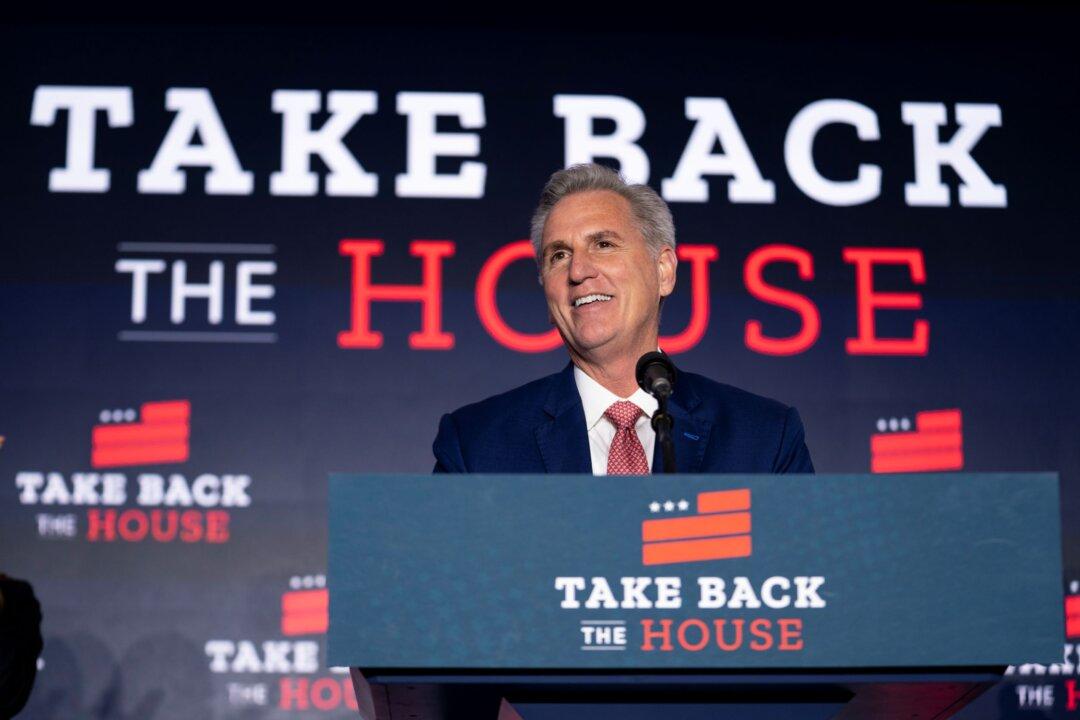House Minority Leader Kevin McCarthy (R-Calif.) and other top Republicans are announcing bids for House leadership positions as the GOP appears poised to flip control of the lower chamber.
The results of the Nov. 8 midterm elections failed to meet most Republicans’ expectations, but the GOP is on track to gain control of the House, with a number of races remaining uncalled as of Thursday.





